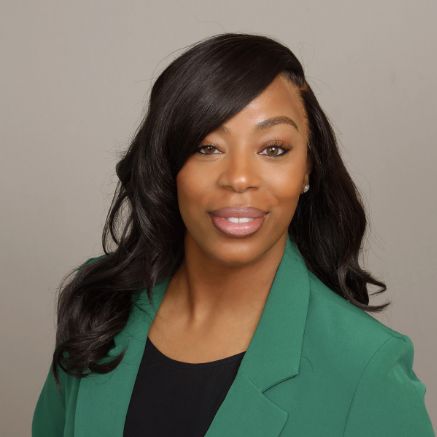How to Get Help for OCD in Chicago
Ready to take the first step toward feeling better? Use the MiResource directory to quickly find an OCD specialist in Chicago who fits your needs, preferences, and schedule. Our trusted, easy-to-use platform helps you compare therapists by specialty, insurance, cost, location, and availability—so getting started feels simple, not overwhelming. Whether you’re looking for virtual care or someone nearby, MiResource connects you with vetted providers offering evidence-based OCD treatment across Chicago’s neighborhoods. Start your search today, message a therapist directly, and take a confident step toward support that meets you where you are.
Finding Licensed OCD Therapists in Your State
Choosing a therapist licensed in your state is essential for telehealth legality and for insurance reimbursement, whether you’re seeking care in Chicago or elsewhere. MiResource lets you filter OCD providers by state licensure so you can quickly see who is authorized to treat you where you live. Every professional listed is vetted, qualified, and legally able to provide care.
Chicago’s neighborhood identities and cultural pride can shape therapy experiences for OCD—whether that means navigating faith and family expectations in Bridgeport or Little Village, or finding queer-affirming spaces in Lakeview and Andersonville. In-person therapy here can incorporate real-world exposure work along the Red, Blue, or Brown Lines, practicing rituals-resistance on a crowded Loop platform, or tackling contamination fears at busy landmarks like Millennium Park or along Michigan Avenue. Many clinics near the Loop, River North, and Streeterville offer validated parking garages, while Lincoln Park and Wicker Park often rely on metered or permit street parking; plan extra time during rush hours on I-90/94 (Kennedy/Dan Ryan) and Lake Shore Drive. For car-free access, use CTA Ventra on the 22 Clark or 151 Sheridan buses, or Metra into Ogilvie/Union Station for short walks to downtown offices.
For local support,
NAMI Chicago
provides helpline support and peer groups with city-savvy guidance on care navigation. The
Chicago Department of Public Health
operates city-run mental health centers and referrals. For specialized OCD treatment and groups, see the
IOCDF
support group directory and the
IOCDF’s
local affiliate OCD Midwest.
Evidence-based care is available at
Rogers Behavioral Health
– Chicago and
The Family Institute at Northwestern University’s Anxiety & OCD
services in Streeterville/Evanston:
.
What You Need to Know About OCD
OCD
means getting stuck in upsetting, persistent thoughts and feeling driven to repeat actions like checking or cleaning to ease the stress. It can consume time, strain relationships, and make daily tasks harder, but caring help is available in Chicago.
Common Signs and Symptoms of OCD
OCD often involves two parts: obsessions (unwanted, intrusive thoughts or images) and compulsions (repetitive behaviors or mental rituals done to feel safer or reduce anxiety). Signs can look different from person to person. Common indicators include:
- Intrusive, upsetting thoughts or images that feel hard to control (about contamination, harm, sexuality, religion, or “rightness”)
- Strong urges to perform rituals to relieve
anxiety
(washing, checking, counting, repeating words, arranging)
- Excessive handwashing, cleaning, or avoiding things seen as “contaminated”
- Repeated checking (locks, appliances, tasks, messages) even when you know they’re likely fine
- Needing things to feel “just right,” spending lots of time ordering or aligning items
- Seeking reassurance over and over from yourself or others (“Are you sure I didn’t hurt someone?”)
- Mental rituals (praying in a specific way, counting, neutralizing “bad” thoughts)
- Avoiding people, places, or situations that trigger fears
- Distress, guilt, or shame about thoughts you don’t agree with or want
- Spending a lot of time on rituals each day, making it hard to keep up with school, work, or
relationships
- Feeling temporary relief after a ritual, then anxiety returns and the cycle continues
- Recognizing thoughts or behaviors might be unreasonable but still feeling driven to do them
- In children and teens: increased rituals or “rules,” repeated questions, meltdowns when routines change, trouble finishing schoolwork due to perfectionism
If these signs feel familiar to you or someone you care about in Chicago, you’re not alone. Support and effective treatments are available.
Causes and Risk Factors for OCD
OCD develops from a mix of factors, including differences in brain wiring and chemistry, family history, and how we learn to cope with worry and uncertainty. Stressful life events, trauma, chronic stress, and changes at home, school, or work can make symptoms stronger, and some people are naturally more anxious or perfectionistic. These influences can interact with each other, which is why two people in Chicago with OCD may have very different experiences and triggers. Most importantly, OCD is not your fault—it’s a real, multifactorial condition, and effective help is available.
How OCD Can Affect Daily Life
OCD can strain relationships when someone needs frequent reassurance or avoids shared activities, which can feel confusing or overwhelming for loved ones. At work or school, rituals and intrusive thoughts can make it hard to focus, meet deadlines, or arrive on time—like repeatedly checking a lock before leaving or rewriting assignments to feel “just right.” These patterns can lead to stress, exhaustion, and pulling back from social events, lowering overall quality of life. If you’re in Chicago, you’re not alone—support is available to help ease these challenges.
Treatment and Support Options for OCD
Evidence-based care for OCD includes
cognitive behavioral therapy
with
exposure
and response prevention (ERP) as the gold standard, often combined with SSRIs; for treatment-resistant cases, options like intensive ERP programs, TMS, or (rarely) DBS may be considered. Support systems include OCD-trained therapists (in-person or telehealth), group therapy, family education, and peer support groups. Self-help strategies can complement care: ERP-guided workbooks and apps, mindfulness and self-compassion skills, delaying/limiting rituals, and values-based action (e.g., ACT techniques). To get started, consult your primary care clinician or an OCD specialist and explore reputable resources such as the International OCD Foundation (IOCDF), ADAA, and NAMI for provider directories, education, and support.
Frequently Asked Questions
1) What is OCD and how is it diagnosed?
OCD (Obsessive-Compulsive Disorder) involves intrusive, distressing thoughts (obsessions) and repetitive behaviors or mental rituals (compulsions) done to ease anxiety. Diagnosis typically includes a thorough interview about your experiences, medical and mental health history, and how symptoms affect daily life in Chicago. Clinicians use DSM-5 criteria and may use tools like the Yale-Brown Obsessive Compulsive Scale. A licensed therapist, psychologist, or psychiatrist can diagnose OCD in Chicago and help you consider treatment options.
2) Who is most likely to experience OCD?
OCD can affect anyone—children, teens, and adults of all genders, cultures, and backgrounds in Chicago and beyond. Risk factors include family history, differences in brain processes, and stressful or traumatic events, but having risk factors does not mean you will develop OCD. Many people have symptoms without realizing it’s OCD, and many others never develop it despite risks. There is no fault or blame in having OCD.
3) How common is OCD?
OCD is more common than many people think, affecting about 1–2% of people over a lifetime—roughly 1 in 40 adults and 1 in 100 children. That means many individuals and families in Chicago are living with OCD and finding help. Understanding that you’re not alone can be reassuring and a first step toward care. Effective treatments are widely available in Chicago and via telehealth in Illinois.
4) Can OCD be prevented?
There isn’t a guaranteed way to prevent OCD, since genetics and biology play a role. However, early recognition of symptoms, stress management, good sleep, and supportive routines can reduce severity and improve coping. Learning skills from therapies like CBT or ERP early can help limit the impact of OCD in Chicago. Seeking help promptly when symptoms appear often leads to better outcomes.
5) What should I do if I think I have OCD?
Reach out to a licensed therapist or psychiatrist in Chicago who specializes in OCD and evidence-based care like Exposure and Response Prevention (ERP). You can use MiResource to find local providers, filter by specialization, insurance, and availability, and request appointments. Talking with your primary care provider can also help you get referrals and rule out other conditions. If you’re in crisis or thinking about harming yourself, call or text 988 for immediate support while you arrange ongoing OCD care in Chicago.
6) How can I talk to others about my OCD?
Choose one or two trusted people and share a simple explanation of how OCD shows up for you and what helps. Set clear boundaries about topics you’re not ready to discuss, and let them know how they can support you (for example, not assisting with rituals). You can mention that you’re getting care in Chicago and, if helpful, share resources from MiResource so they understand OCD better. It’s okay to keep conversations brief, revisit them later, and prioritize your comfort.













